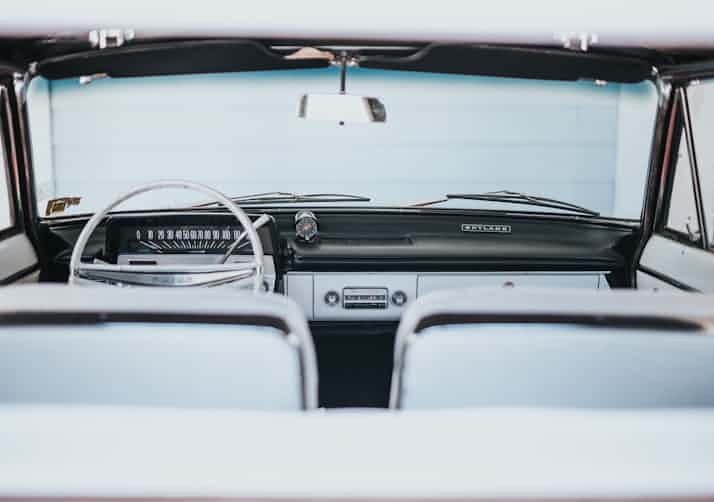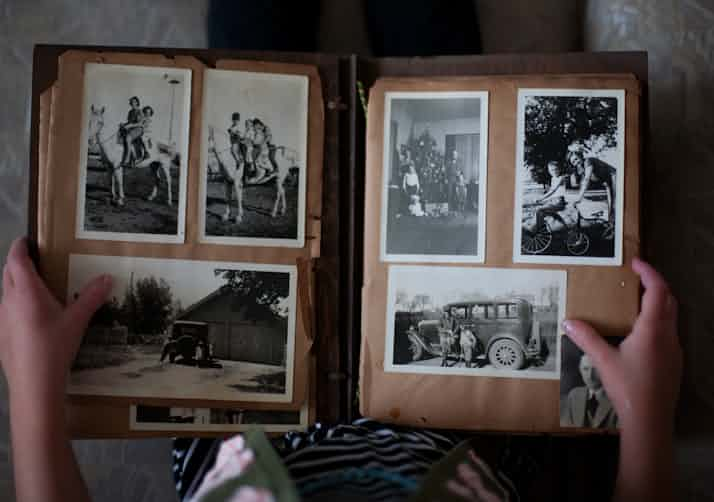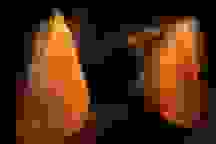
The end came for my brother Dave sometime around Sept. 11, 2020, in a small apartment in Panama City Beach, Fla., that I’d never had the heart to visit. Death came suddenly and naturally, probably a massive heart attack, during the ongoing Covid-19 lockdown and just a few weeks before his 74th birthday. No one is sure of the date because he was alone, the inevitable result of decisions he’d made throughout a life that, to me, seemed like an endless avalanche of pointless battles, calamities, and bad choices.
But I’m trying hard not to judge because I loved him very much.
Brotherhood is a complicated bond under any circumstances, which is why I’m struggling to write about Dave. I’m the youngest of four siblings by 10 years. The others arrived in a tight cluster during and after World War II. Ten years later, I came along. To me, they were teenage aunts and uncles more than siblings, and I grew up worshiping each of them.
My sister Lisa was simply my best friend. I adored her for as long as I could remember until the day in 2015 when she died, just a month shy of 73. And while I have always deeply loved both of my brothers, they presented a dilemma. They were polar opposites, and in describing my love for them, there’s no way for me to consider one without the other.
Bill’s and Dave’s paths diverged in the late 1960s when Bill, the older one, enlisted in the U.S. Navy and volunteered to serve in Vietnam. He did so with distinction, earning a Silver Star and two Purple Hearts during his time as part of a mobile riverine force that patrolled the hot zone of the Mekong River delta. He returned alive, but more remarkably, seemingly well-adjusted and as good-humored as ever. He remains impossibly selfless and heroic to me.
Dave’s path took him into the streets during those tumultuous years, which made him seem cool at the time. Unable to serve in the military—the result of a childhood rock-throwing accident that left him with only one working eye—he channeled his impulse for service into the anti-war movement. According to family lore, he was once detained for throwing chicken manure on the steps of the U.S. Capitol, and for many years remained convinced that domestic intelligence agencies had him on their radar. At one point, during a time when he was drinking heavily, I filed a Freedom of Information Act request to prove to him that he wasn’t being monitored. Unfortunately, his name did turn up in a heavily redacted college campus incident report from decades earlier. That was enough to fuel his delusions.
Dave’s activism never sat well with our father, who was my brother’s equal in terms of stubbornness and willingness to crank the anger knob up to 11. Dad served as an Army captain during World War II and worked for a company that sold steel to giant defense companies. To be honest, he viewed Dave’s activism both in political and personal terms. Who was this privileged middle-class punk to question the decision-makers in Washington? And what if word about his antics got back to The Company? Dad was convinced he’d lose his job.
One unforgettable Christmas Eve when I was 12 or 13, I cowered upstairs as their argument about all that grew heated. I awoke the next morning to find brother Dave gone, tossed out of our parents’ house in frigid Pittsburgh to hitchhike alone back to his college in Alabama. Two titans of obstinance had collided, and naturally they split.
Maybe it was the after-effects of that, or maybe it was driven by something else entirely, but Dave’s self-image seemed, at that point, to set like concrete. For the rest of his life, he cast himself as the radical outsider, unconventional in any way he could be, cynical, often angry, resistant to authority, certain the world was against him, convinced he was among the few brave souls who understood the stakes and was standing up for justice.
Dave carried that persona like a grudge through a spotty career as a retail manager, and through a marriage that eventually unraveled due in part to his intransigence. His career eventually sputtered, his two children grew up mostly without him, and for decades he wore his seething contempt for his ex like a battle scar. The bitterness was, to me, inexplicable. His former wife and daughter have wondered if there might be some unspoken wound deep in his past, and the thought has occurred to me, too. How else to explain his anger and persistent self-medication? Trauma? Mental illness?
So far, I’ve found no easy answers. Dave remains a dark puzzle.
Our parents were, in some ways, his enablers. When he got into financial or legal trouble, they usually bailed him out, convinced that his problems were partly their fault because of his childhood accident. They justified their endless patience and support because they were forever sure that Dave was about to “turn a corner.” Hope, for them, sprang eternal.
During the worst years—the same years when I was trying to raise my own family and build a career—Dave regularly called me late at night. He was usually drunk or high, and spun out fantastic tales of his secret work as a subversive. In the late 1980s, for example, at a time when he was still managing a drug store in Alabama, he claimed that in the wake of Tiananmen Square he was secretly smuggling fax machines to the Chinese resistance. He also once pointed to a trawler cruising just off a white-sand Gulf coast beach and told a young niece it was probably a government vessel, and that it likely was keeping an eye on him.
My patience with that nonsense eventually ran out, and I told him to stop calling. “You sound like Uncle Fred,” I said at the time, angry, referring my mother’s alcoholic brother who was irreparably damaged by his experiences in the Pacific during World War II. To his credit, Dave stopped calling for a while. I’m not particularly proud of that.
That was the bottom, and things eventually got better. He moved from Alabama to Florida’s Gulf Coast, a place he’d always loved, and where he’d taught me to fish and appreciate the ocean. He was usually sober when he called for many years after that.
He talked about a tight and loyal circle of friends at the beach, though it was clear their relationships were born and blossomed in his favorite bars. He worked as a security guard at a local dog track for as long as he was physically able, “retiring” only when the state outlawed dog racing. Disability checks helped sustain him, and I never confronted him with the irony of his dependence on the government he mistrusted.
He curtailed his decades-long addiction to cigarettes for a long period — too expensive, he said — but apparently continued to frequent a local bar that I later learned was named Whiskeys Saloon. It was just a few hundred yards from his apartment. I’m certain everyone there knew him as a ribald storyteller, a loyal drinking buddy, Mr. Good Times. He could be all of those things.
Dave sometimes attended our every-other-year family reunions, and I never saw him drink at those, or during the sporadic visits we had. Even as his health began to fail in the past few years, Bill and I were able to coerce him into traveling to Pittsburgh for our parents’ improbable 75th wedding anniversary. It was the last time we were together. Their three surviving boys shared a hotel room, and as the youngest I got a hard cot between my brothers’ double beds. The stereo snoring sounded like I was sleeping in a sawmill, but it made me happy.
About a year before Dave died, I began ending our email, text, and phone conversations by telling him I loved him. The first time I did it seemed to startle him. He offered no response. But gradually, in the final difficult year of his life, he began telling me he loved me. I’ll be forever grateful for that.
His children noticed a softening as well. After our parents died two months apart in early 2020, he ended up with a modest windfall from their estate. He immediately sent a portion of it to his son, Jeremy, and his daughter, Jill, and made sure I knew that anything left after he was gone was to be divided equally between them. He left a legal will, which surprised everyone, and not long before he died he gave his bank account PIN number to his only son. Jeremy found that his father had actually opened a savings account for that money, and most of it was still there.
A cleaning woman found my brother’s body a week after she last saw him alive. Police contacted Jeremy in Montgomery, and Jeremy met his sister in the Florida panhandle beach city where their father had found a home. They’re remarkable people, Dave’s kids, and despite their complicated relationship with their father they took care of the grim business at hand. I know Dave was proud of them both, as well as their kids, and I know he would have loved the way Jeremy and Jill stepped up for someone who seemed to finally understand that he’d missed a lot of opportunities by making the choices he did.
A day later, Jeremy filled us in on the known details. Our brother died quickly, probably attacked by the heart that had been giving him trouble in the past few years. He’d started smoking again, a signal to Jeremy that his dad knew the end was near and was determined to go out on his own terms doing something he loved—one last upraised middle finger to the ultimate authority. Jeremy also found, among Dave’s things, stacks of letters Dave had written to his elected officials letting them know his thoughts on everything from the Trans-Pacific Partnership to the Iran nuclear deal. I cherish that image of him as an activist to the end.
The manager of the apartments where Dave lived seemed to like him a lot, Jeremy said, but also seemed aware of the Jekyll-Hyde divide that split opinions about my brother among other residents, some of whom just considered him, as Jill said, “an asshole.”
Turns out, my brother was a morning drinker, breakfast at Whiskeys. “I would like to think that his routine of going to the bar and then staying in his apartment the rest of the day was his way of self-isolating the monster,” Jeremy wrote in an email a few days after his father died. “I could be projecting, but I’m going to stick with my truth.” He added: “Stormy (the bartender) will have some sort of memorial or something for him at Whiskeys. It’s what they do.”
Maybe, then, the best way to round off this epitaph is to share this August 17, 2020, posting I found on the Whiskeys Saloon Facebook page, as my brother’s home bar prepared to reopen from months of Covid lockdown:
“Being back open has not only been a blessing to us, but a lot of our customers as well…A lot of you don’t know the guy that sits in the bar because he has no one, or the woman who comes in just to get away for a minute, or the old retired couple who have a daily routine, the widowers, or the veterans who served our country … these are our daytime customers … just to ‘name’ a few. Bars aren’t just places to get drunk and make bad decisions; to some they’re home, they’re family, they’re routine. Being open isn’t being against social distancing, it’s about getting back to normal…”
I’m glad my brother had a place he loved, where he felt a part of a community, where he felt normal, where he was able to drink and share and laugh before going home with whatever demons remained. He asked that his ashes be spread in the same nearby backwater where he and brother Bill taught me to fish. “He told me there’d be enough money to burn him, scatter him at Phillips Inlet, and have a round of drinks at Whiskeys,” Jeremy said. So that’s what we’ll do, because it’s what he wanted.
I love you, my unfathomable brother. May you finally rest in peace.




